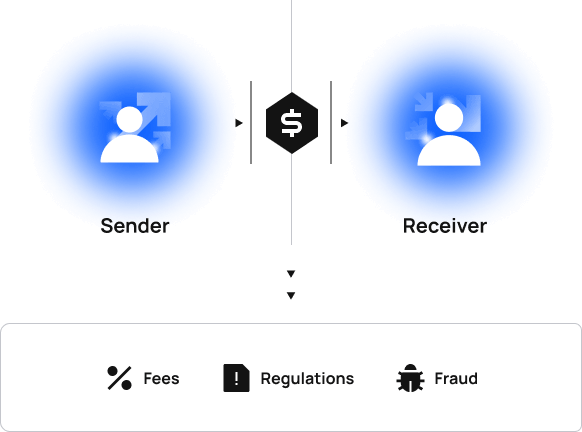Blockchain applications in fintech
-
Remittances
-
Daily purchases
-
Securities trading
Use case 1. Fast remittances

Currently
Fees, regulations, and fraud risks harden remittances, particularly cross-border ones, and even result in fund theft during transactions.
With blockchain
Provide fast and tamper-proof remittance services for clients, with all transactions taking place on a decentralized, incorruptible blockchain network.
Use case 2. Daily purchases

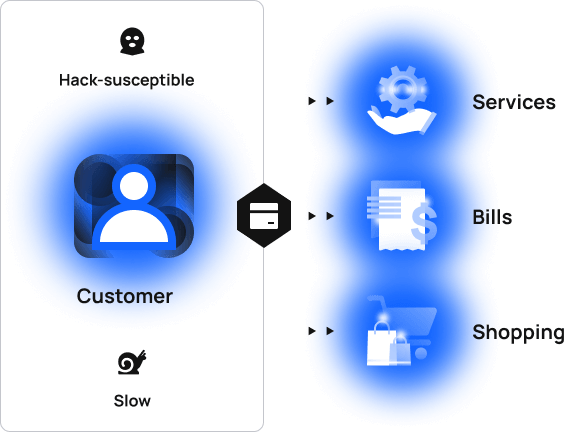
Currently
Customers who make purchases daily with credit cards often deal with the provider’s network issues, bringing slow payment processing and even fraud to the table.
With blockchain
Allow customers to pay in blockchain-enabled assets guaranteeing high transaction speeds along with data security.
Use case 3. Automated securities trading

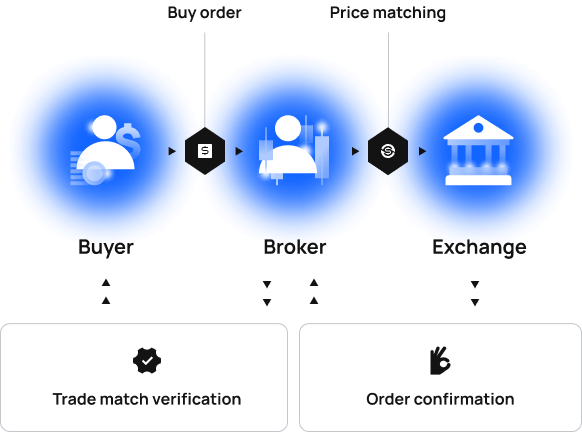
Currently
Traditional securities trading is a slow and sometimes unreliable process, where buyers should deal with brokers before the exchange, which adds unnecessary friction.
With blockchain
Handle all trading steps, from order to confirmation, automatically by delegating intermediary-dependent tasks to self-enforcing smart contracts.

















